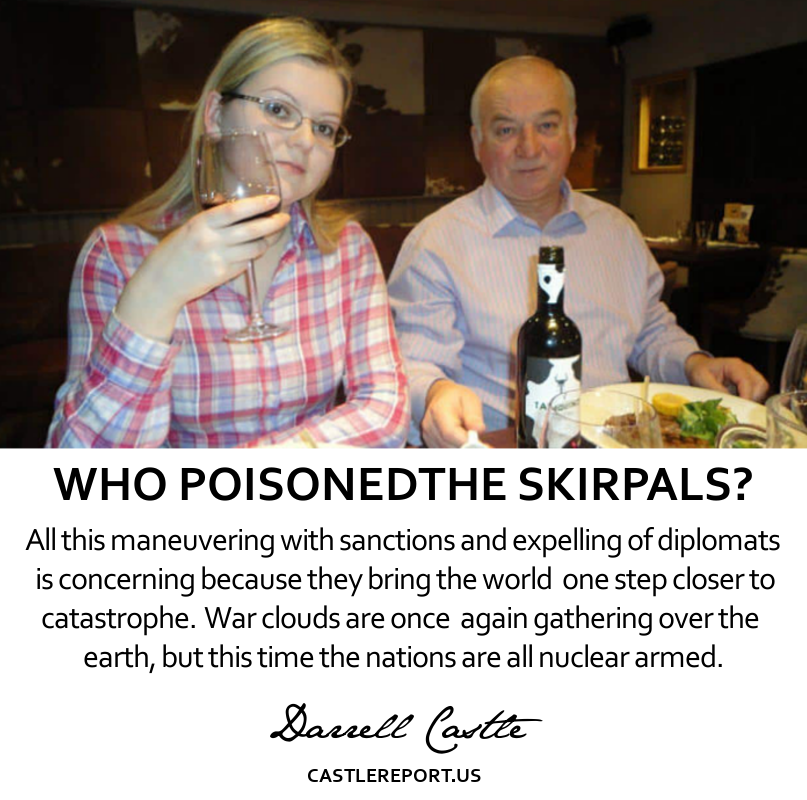
Who Poisoned The Skripals
Podcast: Download
Darrell Castle examines the questions of who poisoned the Skripals and where the evidence is that Russia did it.
Transcript / Notes
WHO POISONED THE SKRIPALS
Hello, this is Darrell Castle with today’s Castle Report. Today is Friday, March 30, 2018, and more importantly, this is Good Friday, or the Friday before Easter. This is good news day and if there is good news out there I will find it today. First though, we have to talk and wonder, about the Skripals and who poisoned them. Were they actually poisoned? It’s hard to be sure in our world because no government, and virtually no media, can be trusted to report the truth.
Something that we can be certain of, is that on Sunday, March 18, Vladimir Putin was re-elected as the leader of Russia. That’s no surprise at all, because although Russia pretends to have Western-style democracy, there is always only one candidate with any chance to win. Just before the election, the news about Sergei Skripal, age 66, and his daughter Yulia Skripal, age 33, being poisoned became Front Page news around the world.
There are many questions that need to be answered about the Skirpals, and many things make the apparent attack on them seem very odd indeed. I said apparent attack because it’s best not to take anything involving government at face value. The official narrative released to the press and to the people of the world, is full of holes and raises more questions than it answers. The first question is why the government of Great Britain thinks that Russia was behind the attack. Britain, through its foreign minister Boris Johnson and Prime Minister Teresa May, said it’s “highly likely” that Russia did it.
So if it is highly likely that Russia did it, why won’t the British government allow the recovered nerve agent to be examined by Russian scientists and by the Convention for the Prohibition of Chemical Weapons to which all nations involved are parties? Article 9 Section 2 of the Convention reads as follows:
“Without prejudice to the right of any State Party to request a challenge inspection, State Parties should, whenever possible, first make every effort to clarify and resolve, through exchange of information and consultations among themselves, any matter which may cause doubt about compliance with this convention, or which gives rise to concerns about a related matter which may be considered ambiguous. A State Party which receives a request from another State Party for clarification of any matter which the requesting State Party believes causes such a doubt or concern shall provide the requesting State Party as soon as possible, but in any case not later than 10 days after the request, with information sufficient to answer the doubt or concern raised along with an explanation of how the information provided resolves the matter.”
That section says to me that when the evidence of an accusation of a breach of the Convention is requested, the evidence must be provided within 10 days. Russia and Britain agreed to this Convention, and it required them to destroy chemical weapons stocks in order to be in compliance. Russia says it destroyed all stocks under UN ,and even United States, observation. Russia has denied the poisoning and requested the evidence, but no evidence has been forthcoming.
Great Britain said to Russia and the world that these people were on British soil and were poisoned with a nerve agent called Novichok, which is made in Russia and nowhere else. It’s true that Novichok is very deadly, and that it was invented by Russia in the 1970’s, but that was at least 30 years ago. Wouldn’t it be very easy for someone else to have acquired it, including those involved in the destruction of the Russian chemical weapons stockpiles? There even seems to be evidence that the Iranians were working on production. We have seen that the Convention, which was set up and agreed to as a method for handling such disputes, requires that an accused nation be given the right to examine the evidence, if any exists, against it. Normal legal procedures for resolving disputes should be complied with by all sides’ before sanctions are imposed.
Instead the British Government simply said you did it and we know you did it. We are not going to show you or the world our evidence but you are guilty because we say you are. The British then imposed additional sanctions on Russia, which has already had its economy crippled by sanctions. The United States, citing solidarity with its old ally, followed suit as did the British Commonwealth nations and the European Union. In response, all Russia could publicly do was expel 23 British diplomats, and some American diplomats as well.
All this maneuvering with sanctions and expelling of diplomats is concerning because they bring the world one step closer to catastrophe. War clouds are once again gathering over the earth, but this time the nations are all nuclear armed.
So having said all that, let’s try to examine some evidence that we do have. Novichok was invented by the USSR in the 1970s but Russia says it destroyed all its chemical weapons under supervision, as the Convention required. The United States is not yet in compliance with the Convention but says it will be within 5 years. Labs all over the world, including Britain, apparently have samples of Novichok available for research, etc.. Each lab has a signature, so releasing the evidence should help trace its source. That tracing is what Russia has been demanding.
The Russian scientist who invented Novichok now lives in the United States. His name is Vil Mirzayanov and he has written a book called “State Secrets”, in which he says he put the formulas. He brags about all this on his Facebook page. The original lab producing the nerve agent called Novichok was in Uzbekistan, and after the fall of the Soviet Union, according to a New York Times 1999 article, the Uzbekistan Government worked closely with the United States in dismantling the site.
Perhaps the most interesting question was raised by how the cleanup of the poisoning site was handled. There are videos of people in hazmat suits doing the cleanup and along with them are police officers clearly visible in their normal uniforms. Novichok is a very deadly nerve agent, but people who live in the vicinity were told to use baby wipes, warm water and detergents to clean their belongings. The British Government announced that there were many people, and then amended that to 38 people in the hospital with nerve agent poisoning symptoms. The hospital said there were none with those symptoms.
Who benefits from the poisoning and its aftermath? In any investigation isn’t that the first question we would ask ourselves? How does Putin benefit in any way from this incident? I suppose it’s possible that he wanted to send a message to his opponents prior to his election, but that one is pretty weak considering his overwhelming support. How do the globalists benefit? The benefit to globalism is obviously to keep alive the narrative of Russia as the enemy of freedom and decency. Russia influenced the US elections on behalf of Donald Trump and now seeks to influence the 2018 mid-term elections, etc.. Those allegations give the globalists a scapegoat and this poisoning incident continues and magnifies that narrative.
Why would the globalists, i.e., those seeking global control, want to destroy Putin and Russia? Probably the answer to that question is because Russia and Putin are not globalists and are opposing the globalist agenda at every turn.
Perhaps we should look at who this man Sergei Skripal actually is. Originally he was a cold war spy for the Soviet Union against the Western Democracies, primarily Great Britain. He was turned into a double agent and a traitor to his native Russia, and was eventually discovered and arrested by Russian authorities in 2004 for passing Russian secrets to Britain. He was held in prison in Russia for 6 years, so Putin had him at his disposal inside Russia for 6 years. In 2010, as part of an exchange program of prisoners, he was exchanged for some Russians that Britain held, and allowed to go to Britain with his daughter. He lives in Britain going about his life for 8 years and then Vladimir Putin decides to send Russian agents to Britain to poison him and his daughter with an exotic nerve agent easily traced back to Putin.
The person who recruited Mr. Skripal as a British agent, Pablo Miller, also happens to live in the same town, Salisbury, as the location of the attack, and he is also acquainted with Christopher Steele, the author of the Trump Dossier paid for by the Democrat campaign, or Hillary Clinton herself. Mr. Skripal maintained his relationship with Mr. Miller over the years and apparently met with him often.
There is a lot of what lawyers would call reasonable doubt in this story, and certainly enough to at least hold off on sanctions until more certainty is obvious but that would not satisfy globalist forces I presume.
Finally folks, where’s the good news in all this. Easter, that’s the good news, and it has been for over 2000 years.
At least that’s the way I see it,
Until next time folks,
This is Darrell Castle,
Thanks for listening.

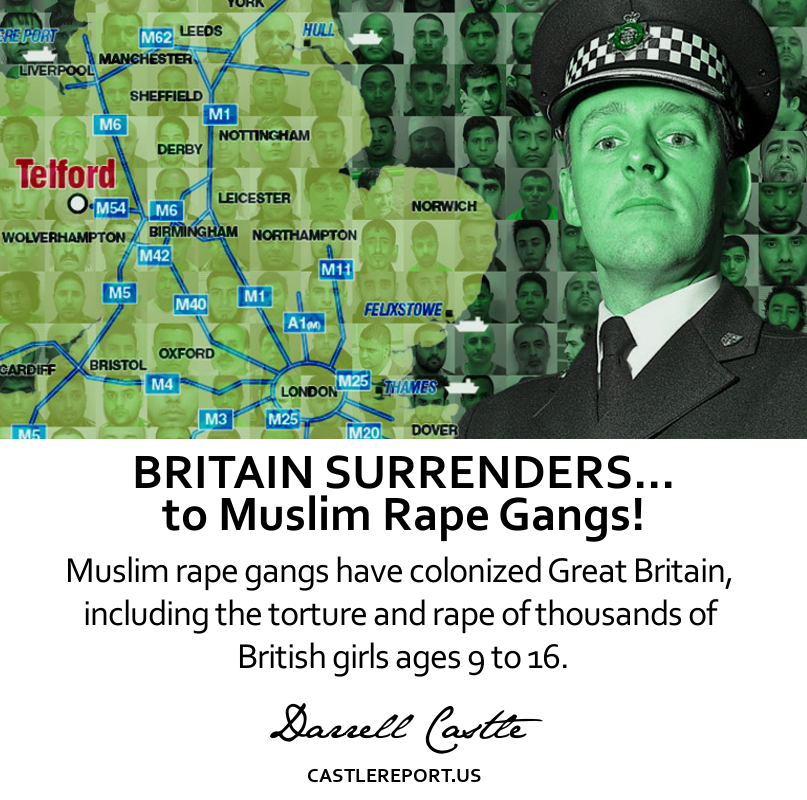

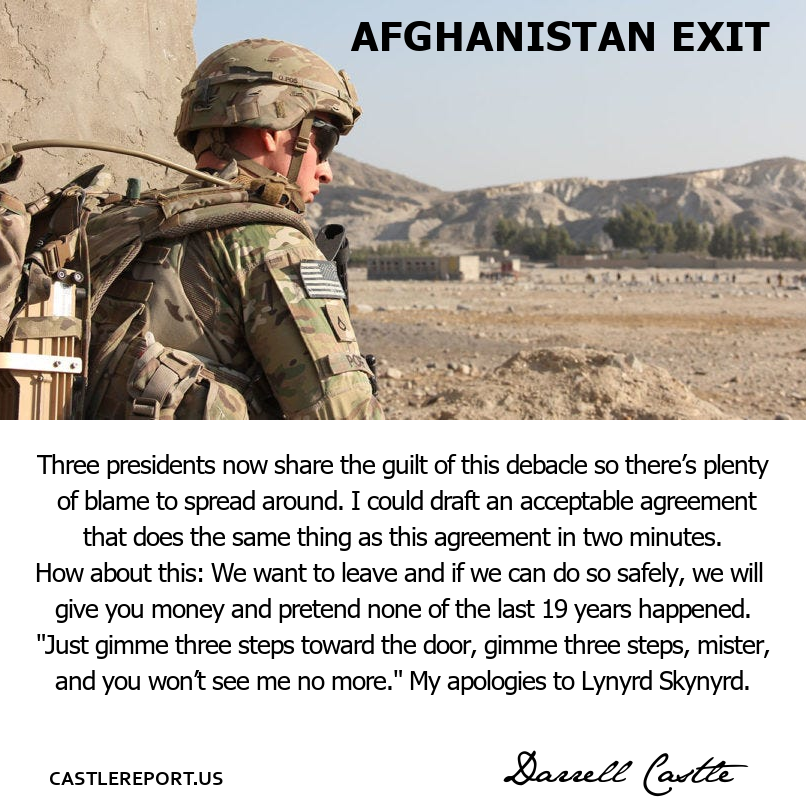
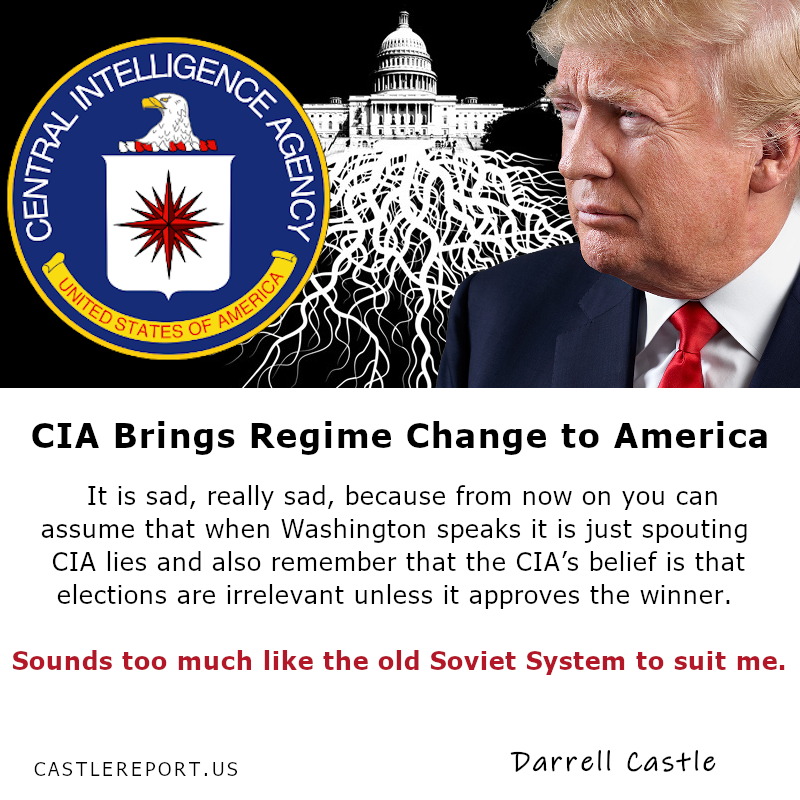
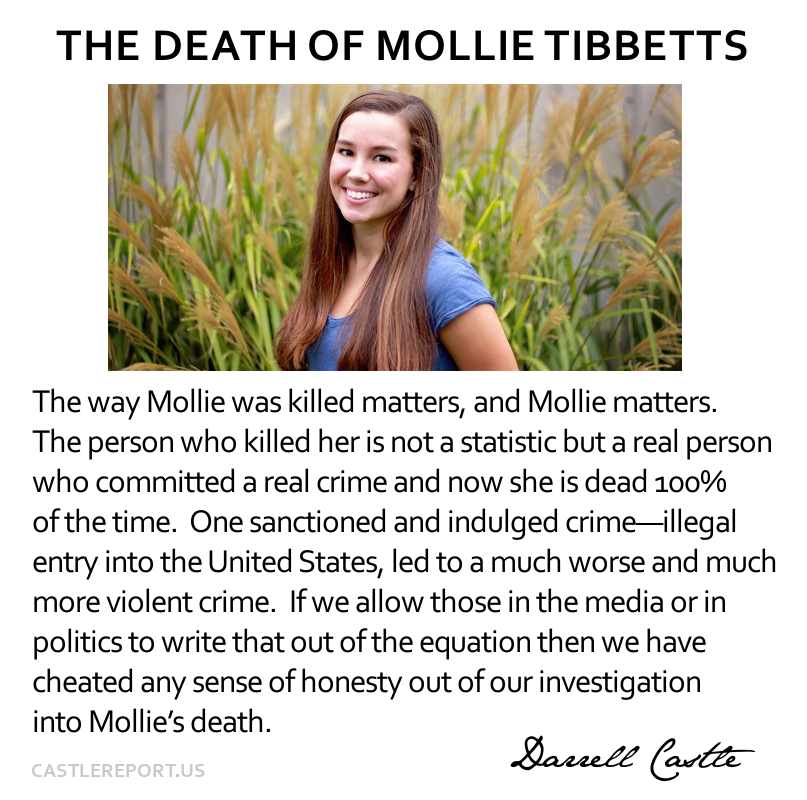
7 Comments
Tom Muldoon
Amen to Easter being the good news. I just came from the Good Friday service at Tenth Presbyterian in downtown Philly, a church made famous by Donald Barnhouse and James M. Boice; Dr. Liam Goligher is senior minister there now. Dr. Goligher is British and sat under the preaching of the great Martyn Lloyd-Jones for a time; his preaching is straight from the Bible and full of love to Jesus. I myself confess that I am painfully distracted from Christ by my own petty anxieties and ambitions.
Dr. Goligher preached on the crucifixion this afternoon — from the 19th chapter of John’s Gospel. He explained how the Jews rejected their true king and preferred to include themselves with the “Goiim” ruled by Caesar. Psalm 2 prophesied that the nations would gather together against God’s Anointed. Indeed on Good Friday the nations, and we too, participated in the ultimate Holocaust, crucifying our Maker. But Jesus, Who is true God and true man, lives and calls people to love and serve Him today.
Among the Evangelicals the Dispensationalists believe that Russia and the Islamic countries will make war against the modern state of Israel before the coming of Jesus Christ to judge the world. But like you, I can believe that the globalists are gathering together against Russia. I wish there were a way to get more Russians to study the Bible; let’s pray for a Slavic Reformation!
Darrell
Tom: Thanks again for your insight. I have a friend living in Russia who publishes an on line news magazine there. He says that one of the primary causes of globalist hatred against Russia is that Russia is now the most Christian country in Europe.
DC
Loren
Mr. Castle:
Thank you for sharing your thoughts on this topic.
I am an Eastern Orthodox Christian living in Japan. The Orthodox Church here is autonomous but is under the Russian Patriarch. Over the years, I have had the pleasure of making friends and talking with many Russians. Their views on Russian politics, Putin, and the Church vary greatly amongst themselves, but nearly all have expressed their concerns about the anti-Russian narrative in Western media, a narrative which became stronger and more uniform—or should I say shriller—in English-language UK and North American media after a 2013 amendment to the 2010 content rating law. (Individual rights and freedoms are protected by the Russian Constitution, but they are not permitted to encroach upon public interests, and it is the protection of minors that is at the heart of the content rating law and subsequent amendments.)
I have talked with Russians who are sincere in their Christian faith in God, and I have also talked with those who are devout Jews, Muslims, or atheists. I have spoken with Russians in churches, coffee shops, consulates, and homes, and I have never been mocked or treated with disdain for being a Christian. I cannot say the same thing for what I have encountered from some Western colleagues in faculty rooms at some universities where I teach. I would concur with your friend’s assessment that Russia is the most Christian country in Europe. From my own experience, I’m tempted to add that Russians are more civil and polite than Westerners when they encounter people who hold opinions or beliefs different from their own, but I don’t think it’s fair to judge the average person by the way certain academics behave.
I’m interested in learning more about your friend’s online publications. Is it possible for you to email me a URL? I could reciprocate with the URL of blog by an American acquaintance who moved to Russia from the South about two years ago.
Have a blessed Easter!
Darrell
Yes Loren. Thank you wwwrussiainsider.com
Bob Peck
Sounds interesting. I gave it a try but the link didn’t work. Might it be https://russia-insider.com/en
Loren
Thank you, Darrell: .
Loren
Sorry, the link didn’t make it up with the rest of the post. The blog is entitled “Between Two Worlds: The “Art” of an American Surviving in Small Town Russia“. Googling that should yield the URL for Dr. Freeman’s posts.